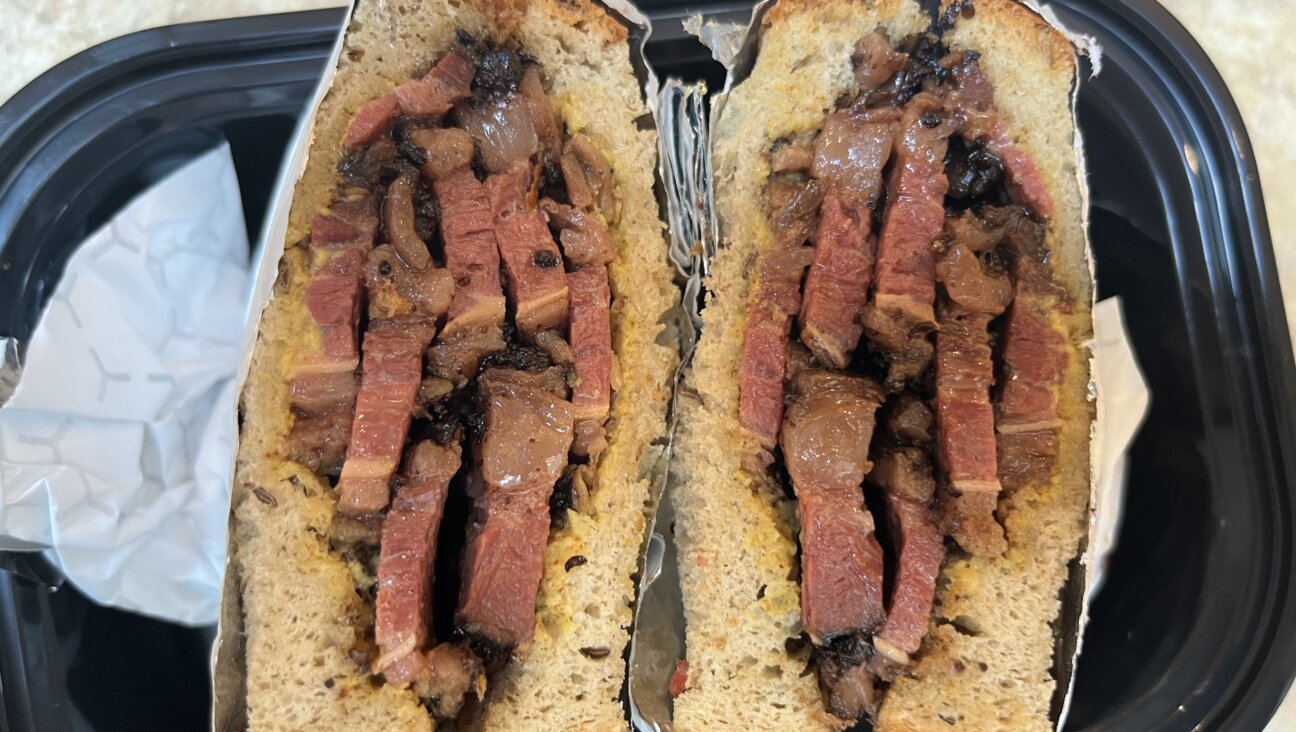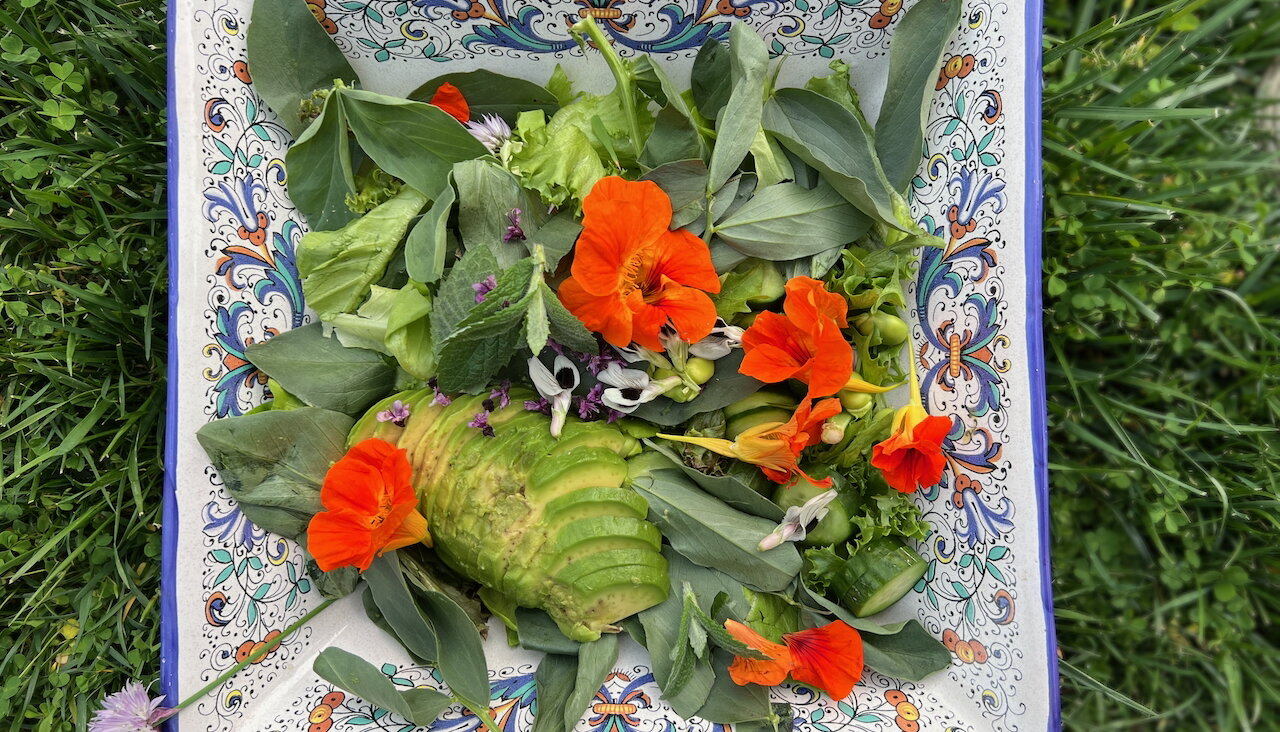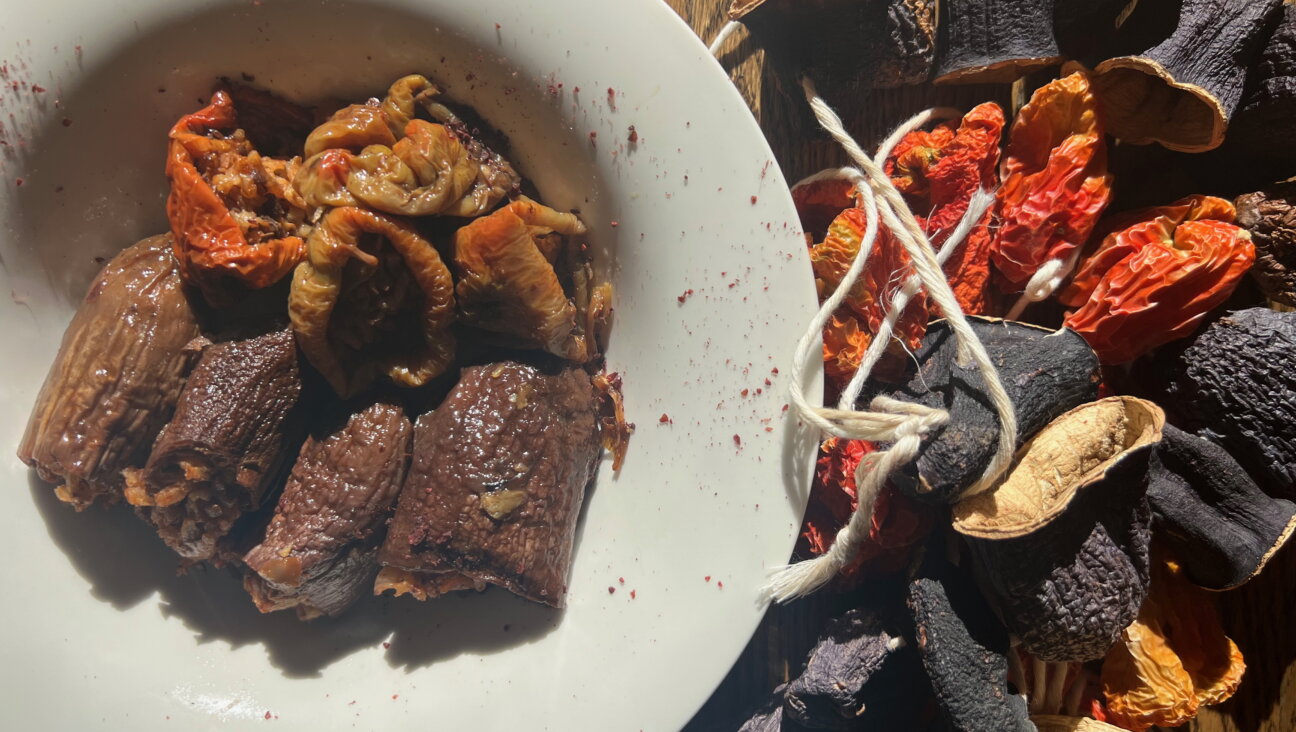Lilly Zabar’s famous chicken soup and matzo balls

chicken soup Image by iStock
This recipe is from “Zabar’s: A Family Story, with Recipes” by Lori Zabar.
Chicken soup is the perfect balm for homesickness as well as for physical ailments. While Louis, Ada, Rose, and Lilly were acclimating to their new country, chicken soup with matzo balls evoked memories of the childhood warmth and security that had been provided by their mothers in Ostropolia. Lilly served her chicken soup at Friday-night Shabbat dinner and on Jewish holidays. Her matzo balls were light as a feather and her boiled chicken so moist and tender it fell off the bone. First, she served the soup and matzo balls and then the chicken on the bone in quarters—or in eighths, if it was a large chicken. These two courses were a filling meal. Though some people shred the chicken into the soup, Grandma Lilly never did.
This recipe was edited and tested by Monita Buchwald.

chicken soup Image by iStock
Chicken Soup
MAKES 2 QUARTS; SERVES 8
One 4- to 5-pound chicken, cut into quarters, cleaned and washed, any visible fat removed with a small paring knife and saved for schmaltz
2 celery stalks, cut into quarters
1 large onion, cut into quarters
2 to 3 large carrots, peeled and cut in half
2-inch piece of fresh ginger
2 garlic cloves
Kosher salt
Freshly ground black pepper
Small bunch fresh parsley (tied with string)
Small bunch fresh dill (tied with string)
Bouillon cube (optional)
Place the chicken in a large soup pot. Pour boiling water over the chicken to cover. Let stand for 5 minutes and then drain the water.
Add cold water just to cover the chicken. Add the celery, onion, carrots, ginger, and garlic. Season with salt and pepper to taste.
Simmer until the chicken is tender, about 1 hour. Add the parsley and dill during last 20 minutes of cooking. If you prefer the chicken more done, almost falling off the bone, continue cooking to your preference. Taste, adding a bouillon cube if desired.
Remove the chicken and carrots. Strain the soup, mashing the juices of the vegetables through the strainer. Let cool, chill, and then skim the fat.
To serve, add the chicken pieces back into the strained broth. Gently reheat. Cut the carrots into disks to garnish the soup.
Matzo Balls (knaidlach)
MAKES ABOUT 18 matzo BALLS
4 large eggs
¼ cup schmaltz (rendered chicken fat), coconut oil, or vegetable oil
¼ cup seltzer, chicken stock, or vegetable stock
2 tablespoons freshly grated ginger
2 tablespoons finely chopped fresh parsley, dill, or cilantro
2 teaspoons kosher salt, plus more for cooking
Freshly ground black pepper
1 cup matzo meal
Combine the eggs, schmaltz, seltzer, ginger, and parsley in a large bowl. Season with 2 teaspoons salt and a few grinds of pepper. Gently mix with a whisk or spoon.
Add the matzo meal ¹∕3 cup at a time. Stir to wet and absorb all the matzo meal. (If the matzo meal is added all at once, the mixture will turn to cement.) The mixture will be a bit loose but firmer after it chills.
Cover and refrigerate until chilled, about 3 hours or overnight.
To shape and cook the matzo balls, fill a wide deep pan with lightly salted water and bring to a boil. With wet hands, take some of the mixture and mold it into a ball the size of a walnut. Gently drop the ball into the boiling water. Repeat until all of the mixture is used.
Cover the pan, reduce the heat to a lively simmer, and cook the matzo balls for about 50 minutes.
If desired, the cooked matzo balls can be transferred to chicken or vegetable soup and served immediately. Alternatively, they may be placed on a baking sheet and frozen, then transferred to a freezer bag and kept frozen until a few hours before serving. Reheat in chicken or vegetable soup or broth.
From “Zabar’s: A Family Story, with Recipes” by Lori Zabar. Copyright © 2022 by Lori Zabar. Excerpted by permission of Schocken, a division of Penguin Random House LLC. All rights reserved. No part of this excerpt may be reproduced or reprinted without permission in writing from the publisher.
The Forward is free to read, but it isn’t free to produce

I hope you appreciated this article. Before you go, I’d like to ask you to please support the Forward.
Now more than ever, American Jews need independent news they can trust, with reporting driven by truth, not ideology. We serve you, not any ideological agenda.
At a time when other newsrooms are closing or cutting back, the Forward has removed its paywall and invested additional resources to report on the ground from Israel and around the U.S. on the impact of the war, rising antisemitism and polarized discourse.
This is a great time to support independent Jewish journalism you rely on. Make a gift today!
— Rachel Fishman Feddersen, Publisher and CEO
Support our mission to tell the Jewish story fully and fairly.
Most Popular
- 1

Culture Cardinals are Catholic, not Jewish — so why do they all wear yarmulkes?
- 2

Fast Forward Ye debuts ‘Heil Hitler’ music video that includes a sample of a Hitler speech
- 3

News School Israel trip turns ‘terrifying’ for LA students attacked by Israeli teens
- 4

Fast Forward Student suspended for ‘F— the Jews’ video defends himself on antisemitic podcast
In Case You Missed It
-

Yiddish קאָנצערט לכּבֿוד דעם ייִדישן שרײַבער און רעדאַקטאָר באָריס סאַנדלערConcert honoring Yiddish writer and editor Boris Sandler
דער בעל־שׂימחה האָט יאָרן לאַנג געדינט ווי דער רעדאַקטאָר פֿונעם ייִדישן פֿאָרווערטס.
-

Fast Forward Trump’s new pick for surgeon general blames the Nazis for pesticides on our food
-

Fast Forward Jewish feud over Trump escalates with open letter in The New York Times
-

Fast Forward First American pope, Leo XIV, studied under a leader in Jewish-Catholic relations
-
Shop the Forward Store
100% of profits support our journalism
Republish This Story
Please read before republishing
We’re happy to make this story available to republish for free, unless it originated with JTA, Haaretz or another publication (as indicated on the article) and as long as you follow our guidelines.
You must comply with the following:
- Credit the Forward
- Retain our pixel
- Preserve our canonical link in Google search
- Add a noindex tag in Google search
See our full guidelines for more information, and this guide for detail about canonical URLs.
To republish, copy the HTML by clicking on the yellow button to the right; it includes our tracking pixel, all paragraph styles and hyperlinks, the author byline and credit to the Forward. It does not include images; to avoid copyright violations, you must add them manually, following our guidelines. Please email us at [email protected], subject line “republish,” with any questions or to let us know what stories you’re picking up.















